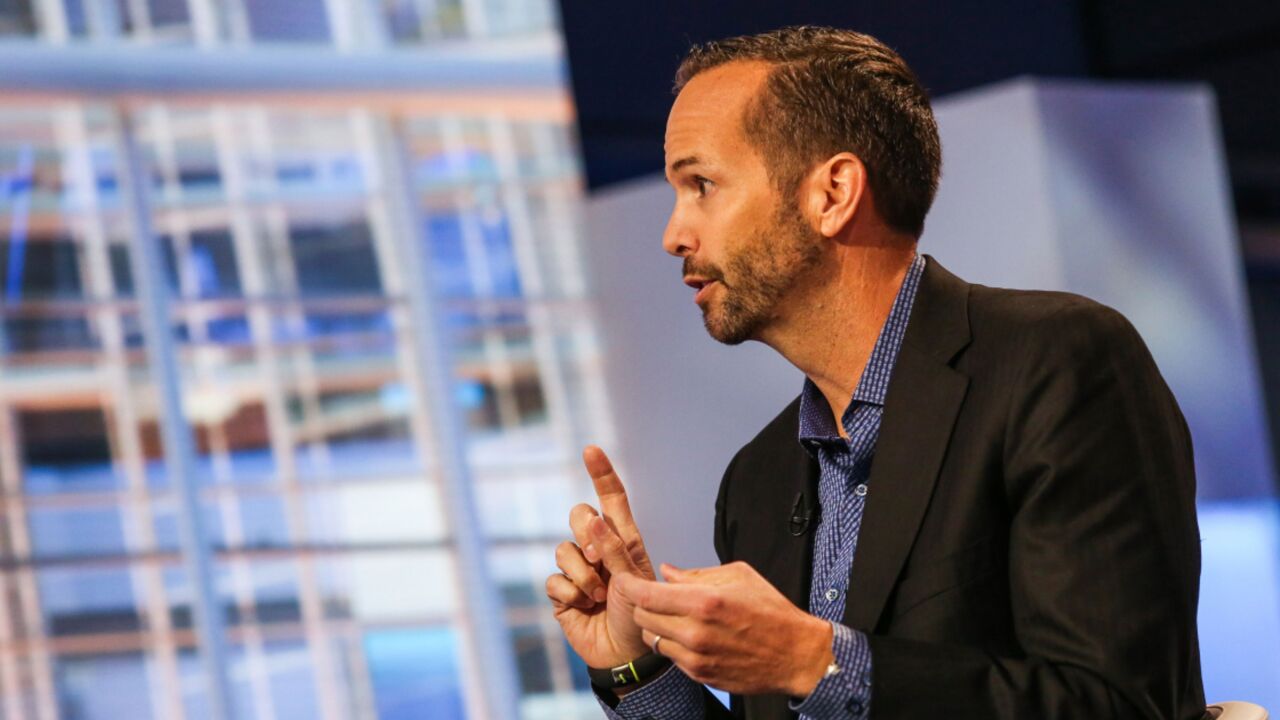
Upstart's stock price tumbled nearly 20% on Wednesday after the lending fintech projected continued pressure on its earnings and said that it plans to rely more on third-party funding to
The San Mateo, California-based lending technology company expects its net revenue to drop and its credit quality to deteriorate in the near term, even among more affluent borrowers, CEO Dave Girouard said Tuesday during Upstart's fourth-quarter earnings call.
He also said that the company is planning to make institutional funding a more pivotal part of its business, and announced on the call that Upstart recently closed a $300-million secondary loan sale to the global alternative investment management company Ares.
"In our first 12 years, the lion's share of our innovation has been focused on AI-enabled credit origination," Girouard said. "But we've directed far less innovation towards the supply side of our business, i.e., the money, and this needs to change. Today and in the coming years, we are increasing our innovation on the money supply and have a healthy head start in this area."
Upstart, which provides AI lending technology to banks and credit unions, reported $140 million of revenue in the fourth quarter, down 4% from the same period in 2022. Full-year revenue dropped by 39% year over year to $514 million. Rising interest rates and the fact that fewer consumers met the company's underwriting standards put pressure on Upstart's origination volume, which dropped 19% from the fourth quarter of 2022 to $1.3 billion.
The company posted a full-year net loss of $240 million, more than double its $109 million loss in 2022.
Girouard said that Upstart has improved its efficiency — the company
"Once the economy inevitably normalizes, and lending becomes fashionable again, I believe it will be difficult for others to catch up with us," he said.
Girouard also emphasized the importance of long-term partnerships with institutional funders in scaling the business reliably and competitively. In addition to the Ares deal, Upstart signed an agreement with an undisclosed lending partner that it expects will originate about $500 million worth of loans over the next year, Girouard said.
But the CEO added that loss-sharing and co-investment agreements would be necessary for these relationships, meaning that Upstart will have skin in the game if the loans lose value.
The company missed revenue projections, and it's trying to tap other funding strategies amid a "difficult lending environment."
Girouard declined to say how the terms of such deals would be structured, but Wedbush analyst David Chiaverini wrote in a note that institutional investors like Ares require above-average rates of return.
Chiaverini also wrote that loss-sharing agreements have become a "necessary evil" for Upstart as it seeks to grow its committed capital, due to limited demand from loan buyers. His rating on the company is "underperform."
"We fear that challenging credit quality performance combined with macro risk could continue to pressure appetite from Upstart's credit buyers and the securitization market," the Wedbush note said. "The biggest risk to Upstart, in our view, is its reliance on third-party funding, and this risk tends to become exacerbated during macro uncertainty and recessions."
Meanwhile, Upstart Chief Financial Officer Sanjay Datta said that although cooling inflation and strong employment metrics are promising, the company isn't "out of the woods from a macro perspective."
"The examples of the partnerships that Dave announced earlier that have closed since the end of last year are hopefully indicators of more good things to come in 2024," Datta said.
Despite the company's cautious optimism, Wall Street analysts expressed skepticism about Upstart's long-term outlook.
Jefferies analyst John Hecht wrote in a research note that the $125 million of revenue that Upstart said it expects to generate in the first quarter of 2024 is well below the analyst consensus forecast of $150.4 million.
Hecht also wrote that his team is maintaining its "hold" rating on Upstart until analysts can see "improving credit and sustained, positive growth and momentum."
Compass Point Analyst Giuliano Bologna, who has a "sell" rating on Upstart, wrote in a note that the company performed "worse than we originally feared." Upstart's dampened origination volumes and limited demand from loan buyers has made its path to profitability "increasingly opaque" in the near term, he wrote.
Upstart's market value
But since the company's disappointing second-quarter earnings report in August, and amid concerns about how much risk is embedded in the third-party funding deals, Upstart's stock price has fallen more than 60% from last year's high. Shares in the company closed Wednesday at $26.46.






